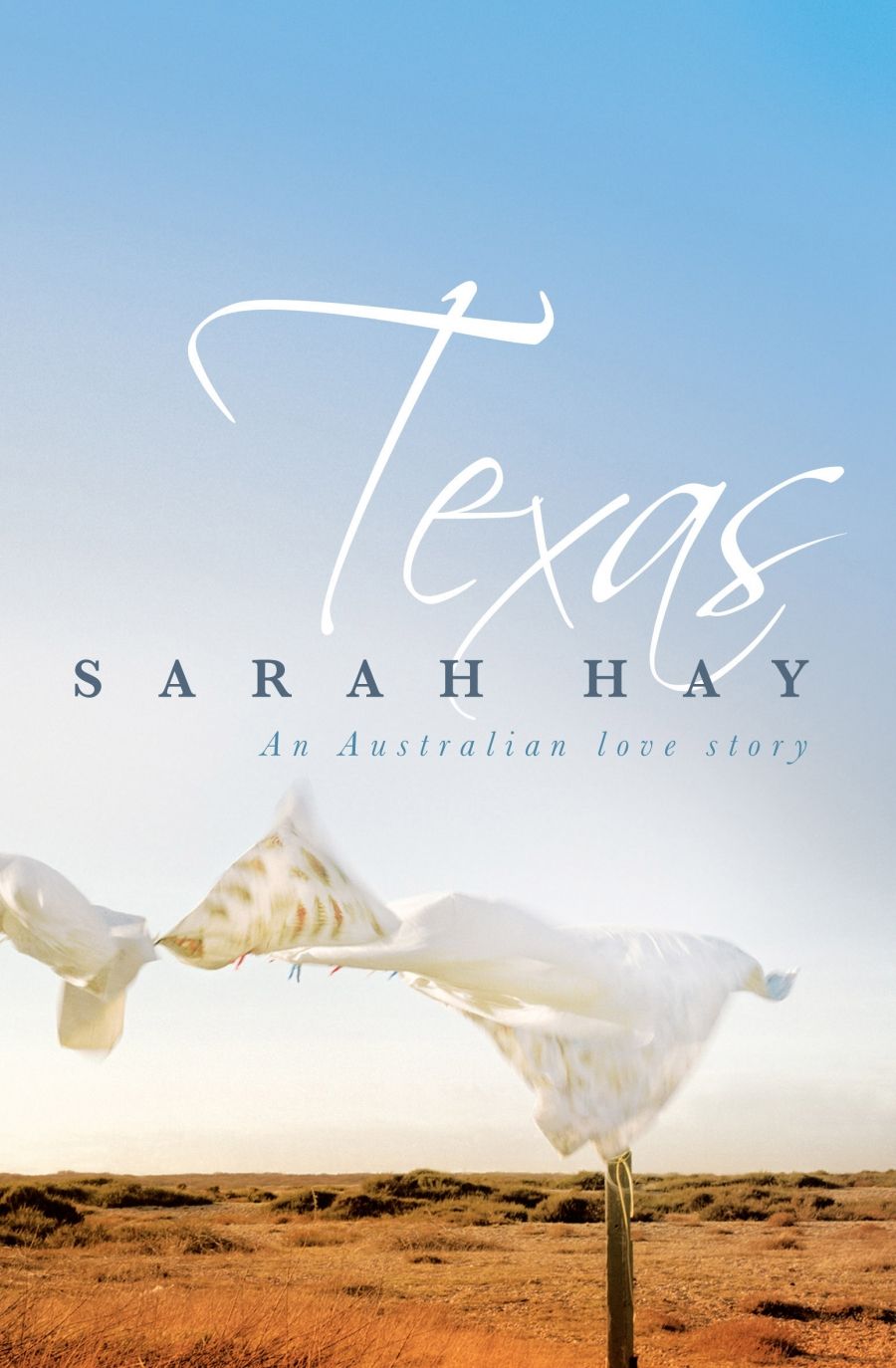
- Free Article: No
- Contents Category: Australian Fiction
- Custom Article Title: Visceral writing
- Review Article: Yes
- Article Title: Visceral writing
- Online Only: No
- Custom Highlight Text:
Sarah Hay’s new novel is set in north-western Australia against a background of intense heat and bone-hard country, a continent away from the grim southern island setting of her previous novel, Skins (2001). Although this second novel by the Vogel-winning author explores a very different place and time, the two novels share some common terrain. Both unfold in remote locations where conditions of survival are harsh; both explore themes of loneliness, will, desire and the impact of colonisation.
- Book 1 Title: Texas
- Book 1 Biblio: Allen & Unwin, $22.95 pb, 272 pp
- Book 1 Cover Small (400 x 600):

- Book 1 Cover (800 x 1200):

A great strength of this novel is the way Hay captures Susannah’s feelings of ambivalence about her new situation: the blur of exhaustion and alienation through which she nurtures her children and her husband; her loneliness; the effort to keep some domestic order and to discover a sense of herself. Laura’s arrival offers a prospect of female company, but their different ages and backgrounds, Laura’s involvement in outdoor work and her sexual vulnerability, separate them from more than a glimpse of friendship.
The novel is named after the Aboriginal stockman, Texas, with whom Laura almost immediately begins a relationship. The title is clearly intended to carry considerable resonance, and this is pursued in various ways throughout the book. We encounter Texas through his words, his affectionate and playful attraction to Laura, his quiet advice to John, the new station manager, and his shock at the spectacle of cattle desperate to reach water. Yet Texas himself is a schematic figure: outback stockman, representative of his people and object of Laura’s desire for a sun-drenched Australia. The old paperback westerns that Laura and Susannah find at the station homestead also allude to ‘Texas’ as a signifier of cowboy adventure-land.
Sarah Hay’s fiction joins a body of writing about Western Australia, its landscape, history and contested identities. These have been explored in novels as diverse as Katharine Susannah Prichard’s novel Coonardoo (1929), with its portrayal of sexuality and power between whites and blacks in remote cattle country, and the compelling imaginative and linguistic negotiations of Kim Scott’s Benang (1999). Texas does not sweep us off our feet with the poetic universalism of Prichard’s prose or Scott’s striking point of view. Nor does it seek to emulate the action narratives of a novelist such as Tim Winton.
Hay’s approach is more intimate; closer to realism. As with Skins, Hay has researched her subject, and has drawn on personal experience in the Kimberley region. Her writing captures the vivid landscape and the effort of survival for both humans and beasts, the cross-currents of potency and frustration between the men and women who inhabit working country. A careful focus is maintained through the eyes of Susannah and Laura. Hay is particularly interested in how women negotiate daughterhood as well as motherhood. While she addresses romanticisation, she does not romanticise issues of racial difference or social inequality.
Although symbolically at the heart of this novel, Texas is one of a group of characters. Almost as significant is the character of Irish, the elderly stockman dying of emphysema, who has stories to tell. The image of the spider web recurs here, first as a barrier to belonging, then as a break with the past. ‘Irish had many stories … like the broken strands of a spider’s web floating the bush after someone had unthinkingly walked through it. Once they would have connected.’
Both Laura and Susannah are drawn to Irish and his caravan, where Susannah later discovers the old man’s attempt, long ago, to marry an Aboriginal woman. Although Hay’s novel refers specifically to the history of systematic racial repression in Western Australia – movingly explored in Stephen Kinnane’s family biography, Shadowlines (2003) – Texas is also about intimacy, past dreams and illusions overcome. With the death of the old man, Susannah finds a way to overcome her grief. Meanwhile, Laura faces the reality of a life for Aboriginal people in Australia’s remote regions that is totally beyond her experience. With Texas, she is drawn into the hypnotic heat of drifting days:
… punctuated by the appearance of beer and liquor in brown bottles ... Thick wet air wrapped around them. She stopped resisting and it seeped into her being. Sometimes there was a fight or someone said something in anger and it broke through the cloud, for a moment.
Reviewers sometimes compare first and second novels unfavourably, perhaps on the basis of disappointed expectation. There are occasional rough patches in the writing of Texas, but these are small matters. If there is a weakness here, it lies in the marital rapprochement, which needs more elaboration. There is, however, much to admire in this thoughtful study of life in the remote north-west. Texas shares themes with Hay’s first novel, and shows its author’s talent for visceral writing. These are both significant contributions to Australian fiction.


Comments powered by CComment